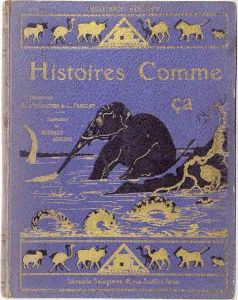Kipling, Joseph Rudyard Paintings
Joseph Rudyard Kipling was an English journalist, short-story writer, poet, and novelist, born in Bombay, British India, on December 30, 1865. He is best known for his works of fiction, including 'The Jungle Book' (a collection of stories which includes 'Rikki-Tikki-Tavi'), 'Kim' (a tale of adventure), and many short stories, as well as his poems, including 'Mandalay' and 'Gunga Din'. Kipling was one of the most popular writers in England, in both prose and verse, in the late 19th and early 20th centuries.
Kipling’s early years in Bombay were formative in shaping his later views and literary motifs. At the age of five, he and his younger sister, Alice, were sent to England to live and go to school in Southsea, where he experienced neglect and cruelty, which he later wrote about in his stories. He returned to India in 1882 and worked as a journalist in Lahore for several years, a period during which he began publishing short stories.
In 1892, Kipling married Caroline Balestier and moved to the United States, where they lived for a few years before returning to England. His most prominent work, 'The Jungle Book', was published in 1894, followed by 'The Second Jungle Book' in 1895. These books are notable for their imaginative storytelling and deep understanding of jungle life. The character of Mowgli, a boy raised by wolves in the Indian jungle, has become particularly iconic.
Kipling’s literary career continued to flourish with 'Kim' (1901), a novel that reflected his views on British imperialism in India and is considered by many to be his masterpiece. He also wrote poetry that reflected the imperialist sentiment of the time, such as 'The White Man’s Burden' (1899), which encouraged the U.S. to take up the task of empire.
He was awarded the Nobel Prize in Literature in 1907, becoming the first English-language writer to receive the prize and its youngest recipient to date. Despite his success, Kipling's reputation declined in the post-colonial period, as his works were increasingly criticized for their imperialist themes.
Kipling continued to write until his death; however, his later years were marked by tragedy, including the death of his son John in World War I, which greatly affected him and influenced his later poetry. Joseph Rudyard Kipling died on January 18, 1936, in London, and his ashes are interred in Poets' Corner of Westminster Abbey.
